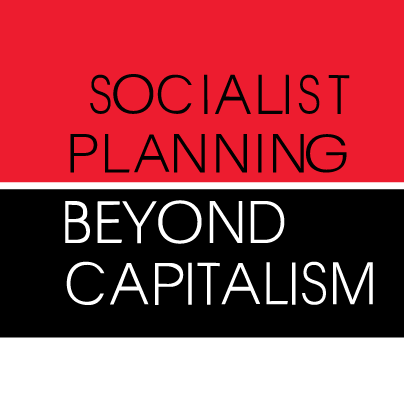People don't intentionally act to produce society, nevertheless their actions produce it, behind their backs, as it were. All those humans intentionally do is merely to try to satisfy needs and desires. But in order to do this, they have to work at a specific job, receive a wage or a salary, and thereby satisfy their needs. However, in the process, people produce more than they realize. They inherit the tools, institutions, and belief systems of previous generations, which they inadvertently reproduce in the process of satisfying their needs. Whatever the individual's immediate personal or family needs, his or her work responsibilities demand that more goods and services be produced than are necessary for private consumption. In order for the individual members of the society to get their needs and desires satisfied, a super-personal system of production, decision-making, circulation, and distribution must be set up, maintained, and in some cases, transformed.
As people become more politically and economically alienated, they become less and less aware of macro-social processes, which become more or less unconscious and over which they have diminishing control. In spite of their alienation, and in spite of the fact that individuals and families are to a large degree "out for themselves," they nevertheless inadvertently reproduce larger systems and processes-they feed people they will never know, reproduce social institutions they have no power to control, and impact the biophysical environment in ways they do not understand. Part of their activity is conscious, but a much larger part is unconscious. I call the inability to grasp the full implications of cooperative labor, either because of reification or alienation, "social amnesia."
Until now there has never been a time when human beings as a species have intentionally remade these institutions with the intention of changing history. In order for history to become a conscious process, people would have to overturn and restructure the stratification system, which would allow us collectively to take hold of that system. Then it would be possible to design our future, not just improvise it. We would become conscious history-makers, not just unconscious history-shapers.
The process of history shaping involves three participating dimensions-the individual, society, and the biophysical environment. In the process of trying to satisfy our individual needs, we must engage in mediated social relations. In working together to satisfy needs, we use up natural resources and change the ecological niche we inhabit. As a result, socio-cultural systems accumulate wear-and-tear and undergo periodic crisis. People must decide on new ways of engaging this environment and have to build new forms of social organization to better adapt to these biophysical changes. If successful, they produce new means by which to satisfy individual needs. Individuals then develop new needs, and this results in changed social systems and changed ecological conditions. Changes in both these larger systems in turn provide new vehicles by which old individual needs may be gratified and new needs stimulated or discovered. All of this occurs despite reification and alienation.
History-shaping can be defined as the necessary, recurrent, irreversible, and accumulating process of the collective laboring of the entire human species in the past, present, and future. The table at the end shows the differences between mainstream ideas of history and a process-oriented history of council communism, a type of Marxian theory.
Conclusion: So What's Next?
So where does an individual who doesn't give a hoot about history or voting do with all this information? Right now, in Yankeedom, not much. In order to mobilize this cynic we would need a mass socialist political party with clear long-term goals and a transition program of every 3 to 5 years (I'm not talking about Trotsky transition program). The party must have roots in the labor movement (like Labor Notes) and connected to worker cooperatives. It needs socialist political theoreticians and political economists like Michael Hudson, Richard Wolff, Michael Roberts, and Anwar Shaikh. This party does not intend to win elections. Its purpose is to connect, broaden and deepen working class struggles and work these struggles as part of a plan. This was Marx's vision for a communist party which he wrote about 170 years ago.
Next Page 1 | 2 | 3 | 4 | 5 | 6 | 7
(Note: You can view every article as one long page if you sign up as an Advocate Member, or higher).





